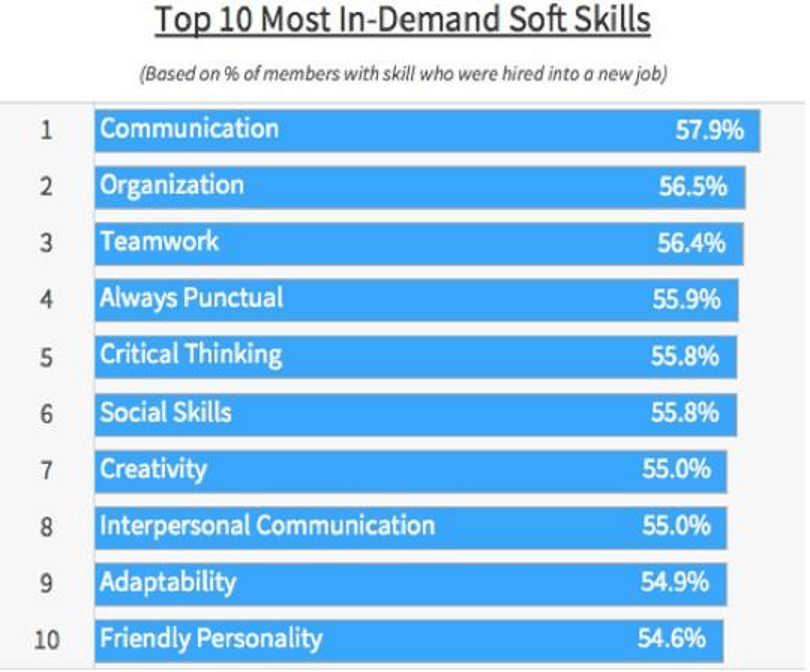Paths to Success Through 21st Century Skills: "Communication skills"
In our previous edition, we discussed "To know about yourself" as the first of 10 key areas of focus covered in our article "Paths to success through 21st century skills. Also, we discussed the first item "To know about yourself". In this edition, we debrief the importance of "Communication skills".
- To know about yourself
- Communication skills
- Interpersonal skills & Team spirit
- Emotional intelligence
- To think differently
- Decision making
- Problem solving
- Stress management
- Time management
- Language proficiency
Stressing the importance of communication is an understatement. Having strong communication aids in all aspects of life - from personal life to professional life! Whether it be a teacher teaching in a class, an employee interacting with others in a business setting or a discussion within the family or friends - a good communication will make a huge difference. In fact, communication makes one of the first impressions when we interact with new people.
Often, “communication" is confused with "language skills". While language skills are important, communication is much more about having "clarity of thought" in our mind and conveying it. People who feel the lack of confidence in English, can ask themselves, can they actually communicate well in their mother tongue?
A LinkedIn research revealed "communication" to be the most sought-after soft skill among candidates for employment.

The good news is, one can improve them! As per Harvard, this cannot just be learned but even mastered. If you are wondering how, here are some tips:
1. Be clear and concise: Communication is primarily about choice of words. The key to powerful communication is clarity and brevity. Outlining carefully and explicitly what you want to convey and why will help ensure that you include all necessary information. It will also help you eliminate irrelevant details.
2. Prepare ahead of time: Preparation involves thinking about the entirety of the communication - what you are going to say and how, structuring and practicing. Prepare ahead for any questions, requests for additional information or clarification, and disagreements, so you are ready to address them calmly and clearly.
3. Be mindful of non-verbal communication: Our facial expressions, gestures, and body language can, and often do, say more than our words - they in fact have more impact than the spoken words. Your nonverbal cues must, at all times, support your message. At best, conflicting verbal and nonverbal communication can cause confusion. At worst, it can undermine your message and others' confidence in you and your organization.
4. Watch your tone: The tone can be an especially important factor in workplace disagreements and conflict. A well-chosen word with a positive connotation creates good will and trust. A poorly chosen word with unclear or negative connotations can quickly lead to misunderstanding. When speaking, tone includes volume, projection, and intonation as well as word choice. While writing, this is easy to control - be sure you read your communication at least once, while thinking about the tone as well as message and don't be too hasty in your replies.
5. Practice active listening: Communication nearly always involves two or more individuals. Therefore, listening is just as important as speaking when it comes to communicating successfully. But listening can be more challenging than we realize. The goal of active listening is to ensure that you hear not just the words the person is saying, but the entire message. Some tips for active listening include:
- Giving the speaker your full and undivided attention
- Clearing your mind of distractions, judgements, and counter-arguments.
- Avoiding the temptation to interrupt with your own thoughts.
- Showing open, positive body language to keep your mind focused and to show the speaker that you are really listening
- Rephrase or paraphrase what you’ve heard when making your reply
- Ask open ended questions designed to elicit additional information
6. Building your emotional quotient: Communication is built upon a foundation of emotional intelligence. Simply put, you cannot communicate effectively with others until you can assess and understand your own feelings.
Leaders with a high level of emotional intelligence will naturally find it easier to engage in active listening, maintain appropriate tone, and use positive body language, for example.
Understanding and managing your own emotions is only part of emotional intelligence. The other part—equally important for effective communication—is empathy for others.
Building and mastering effective communication skills will make your job easier, even during difficult conversations. Taking the time to build these skills will certainly be time well-spent.

